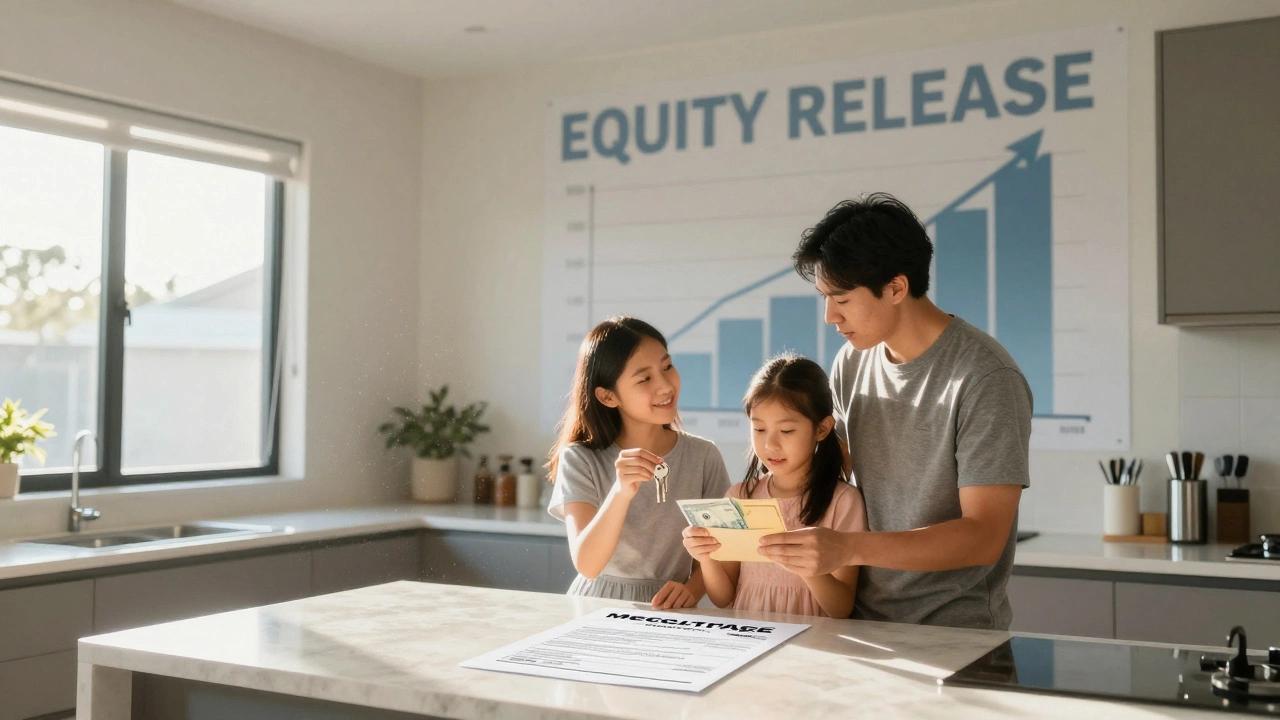Reverse Mortgage: Turn Home Equity into Cash Flow
When working with reverse mortgage, a loan that lets homeowners aged 55 or older convert part of their property value into tax‑free cash without monthly repayments. Also known as home equity release for seniors, it provides a way to boost retirement income while staying in the family home.
Reverse mortgages sit inside the broader home equity, the market value of a house minus any existing mortgages or liens ecosystem. By tapping that equity, seniors can create a steady cash flow, regular income that supplements pensions or savings without having to sell the property. The loan amount is based on age, property value, and interest rates, so older borrowers typically access more funds. This ties directly into retirement income, the total money a person receives after leaving the workforce, from sources like state pension, occupational schemes, and personal savings. Because the repayment is deferred until the homeowner dies, moves into long‑term care, or sells the house, the product aligns with the goal of preserving assets for heirs while covering living costs today.
Key Considerations Before You Choose a Reverse Mortgage
First, age eligibility matters: you must be 55+ and own the home outright or have a low mortgage balance. Second, the interest on a reverse mortgage compounds over time, which can reduce the equity left for inheritance. Third, you remain responsible for property taxes, insurance, and maintenance—failure to meet these can trigger repayment. Fourth, unlike a traditional refinance, a reverse mortgage does not require monthly repayments, but it does create a debt that grows. Fifth, the loan can be taken as a lump sum, regular instalments, or a line of credit, giving flexibility to match your cash‑flow needs.
Understanding how a reverse mortgage interacts with other financial products is crucial. For example, if you already have an annuity providing a steady paycheck, a reverse mortgage can bridge gaps during market downturns. If you own multiple properties, the equity in the primary residence is the only one you can release. And if you’re considering downsizing, a reverse mortgage might let you pull out enough cash to buy a smaller home without depleting savings.
Below you’ll find articles that dive deeper into each of these angles: the mechanics of the loan, the tax implications, the impact on estate planning, and real‑world case studies from UK seniors who have used a reverse mortgage to fund travel, home improvements, or healthcare costs. Armed with this overview, you can decide whether a reverse mortgage fits your retirement strategy or if another equity‑release option might serve you better. Continue reading to explore practical tips, common pitfalls, and step‑by‑step guidance that will help you make an informed choice.

How Equity Release Affects Your Mortgage in Australia: A Simple Guide
Reverse mortgages are Australia's main equity release tool. They pay off existing mortgages first. Interest compounds over time, reducing equity. This may affect Centrelink benefits and inheritance. Downsizing is a common alternative.

What Happens When You Pull Equity Out of Your House?
Pulling equity out of your house gives you cash but increases your debt and risk. Learn how it works, the real costs, when it makes sense, and safer alternatives in Australia.

Should You Take Equity Out of Your House? Pros, Cons & Smart Tips
Learn when taking equity out of your home is smart, compare loan options, weigh pros and cons, and get a clear checklist to decide if equity release fits your financial plan.




